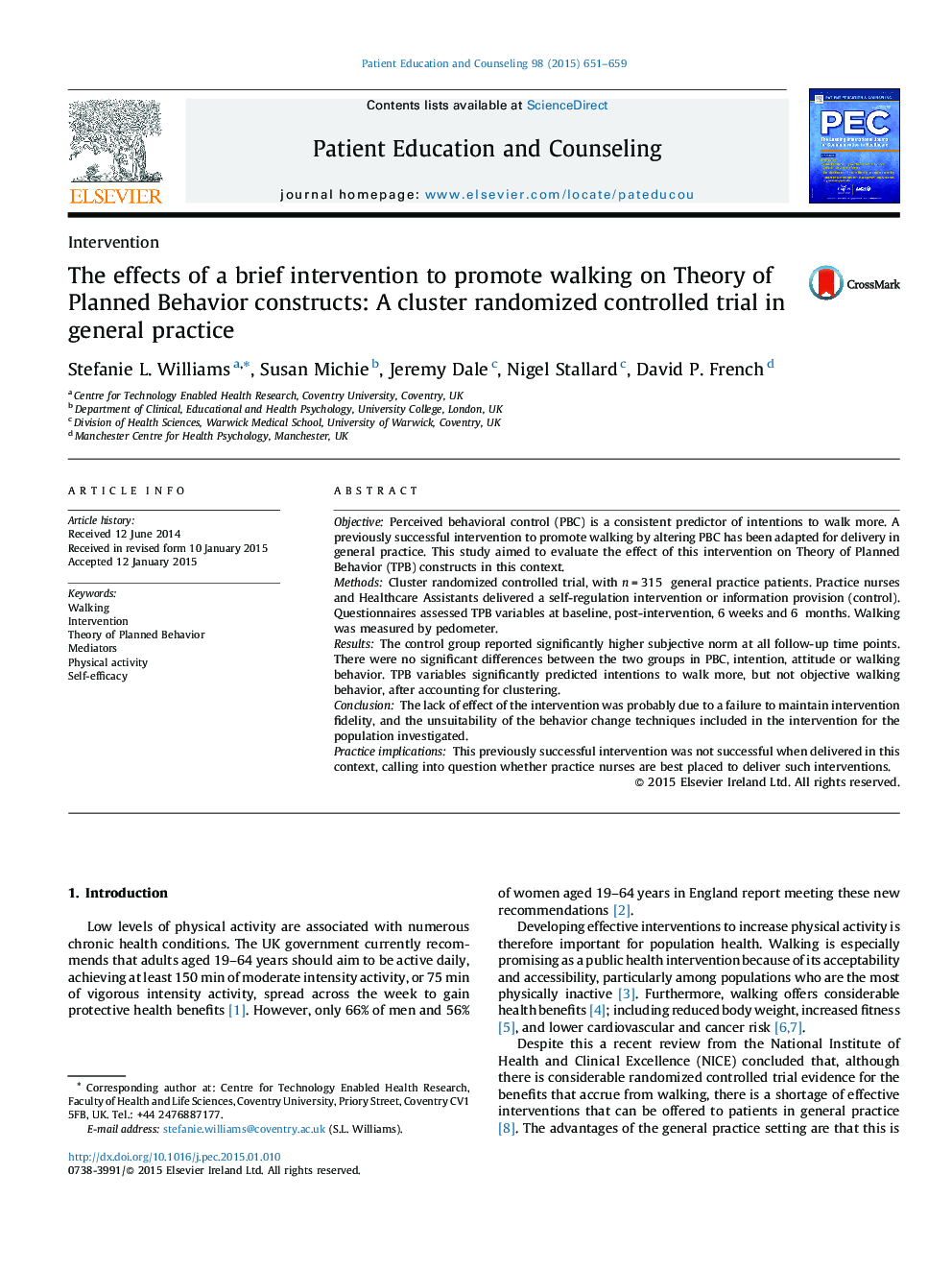| Article ID | Journal | Published Year | Pages | File Type |
|---|---|---|---|---|
| 6152238 | Patient Education and Counseling | 2015 | 9 Pages |
â¢We examine changes in psychological variables in a trial of a walking intervention in general practice.â¢The intervention did not change perceived behavioral control.â¢The intervention had long-term detrimental effects on subjective norm.â¢TPB constructs predicted intentions to walk more, but not objective walking behavior.â¢Efficacy of delivery of behavioral interventions by practice nurses is questioned.
ObjectivePerceived behavioral control (PBC) is a consistent predictor of intentions to walk more. A previously successful intervention to promote walking by altering PBC has been adapted for delivery in general practice. This study aimed to evaluate the effect of this intervention on Theory of Planned Behavior (TPB) constructs in this context.MethodsCluster randomized controlled trial, with n = 315 general practice patients. Practice nurses and Healthcare Assistants delivered a self-regulation intervention or information provision (control). Questionnaires assessed TPB variables at baseline, post-intervention, 6 weeks and 6 months. Walking was measured by pedometer.ResultsThe control group reported significantly higher subjective norm at all follow-up time points. There were no significant differences between the two groups in PBC, intention, attitude or walking behavior. TPB variables significantly predicted intentions to walk more, but not objective walking behavior, after accounting for clustering.ConclusionThe lack of effect of the intervention was probably due to a failure to maintain intervention fidelity, and the unsuitability of the behavior change techniques included in the intervention for the population investigated.Practice implicationsThis previously successful intervention was not successful when delivered in this context, calling into question whether practice nurses are best placed to deliver such interventions.
